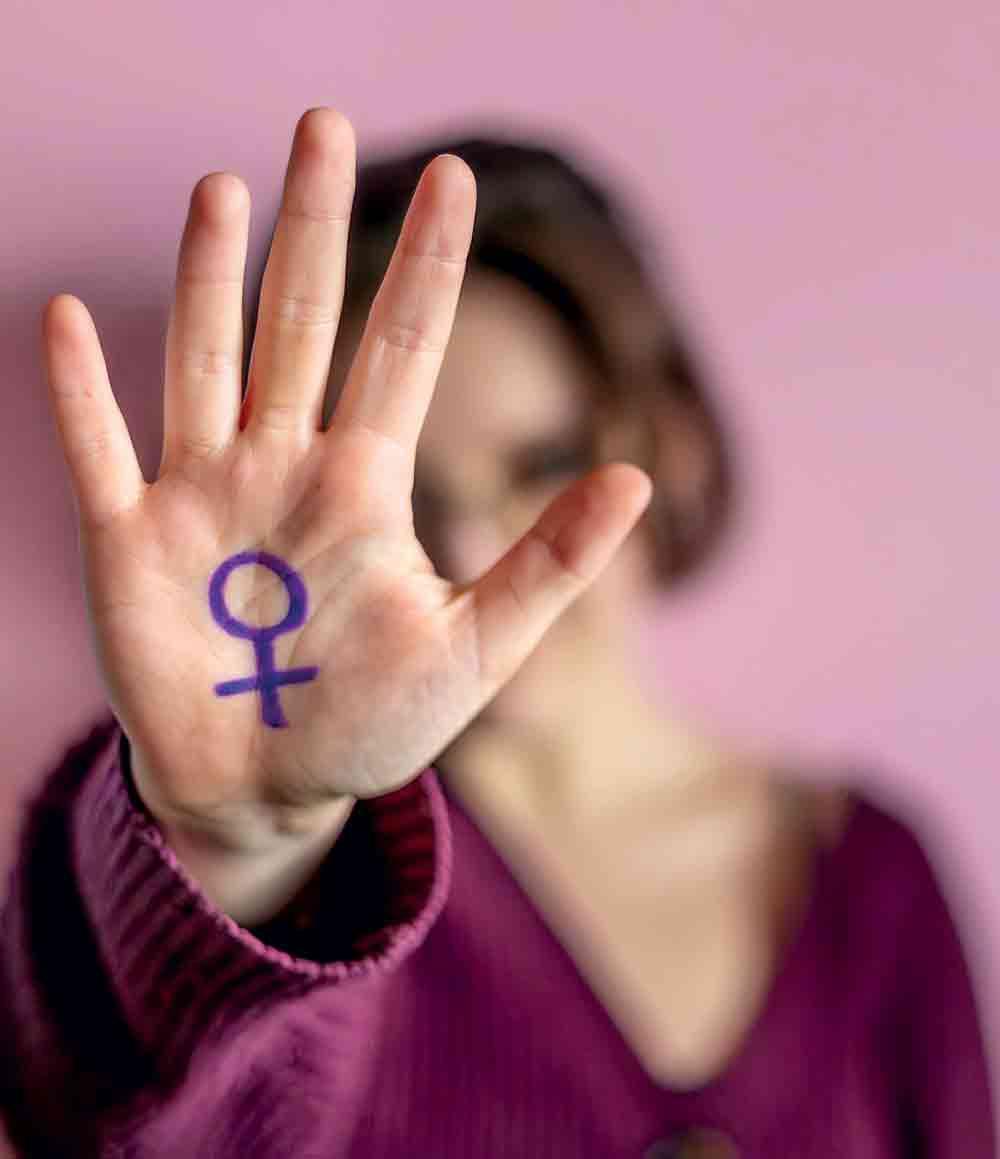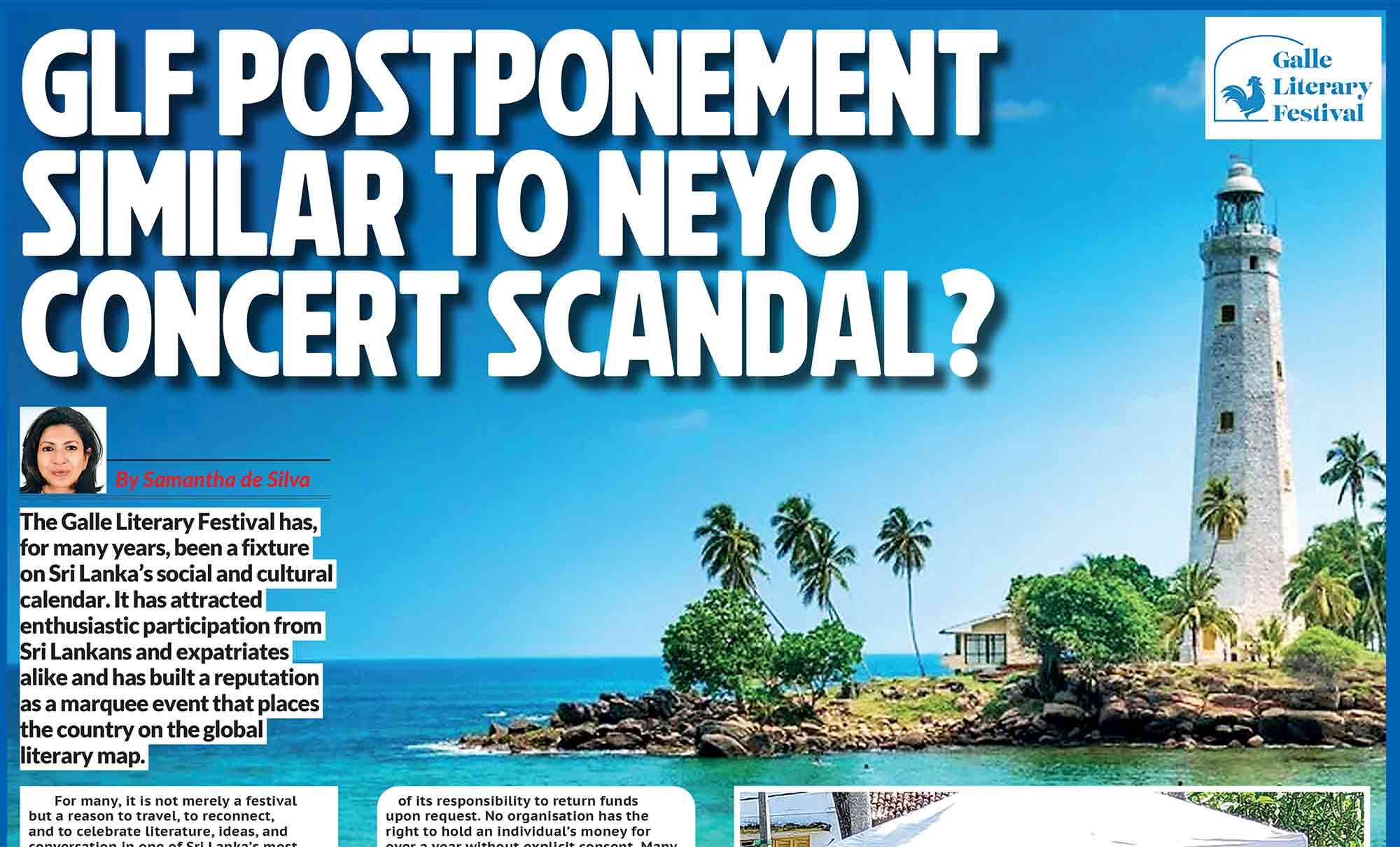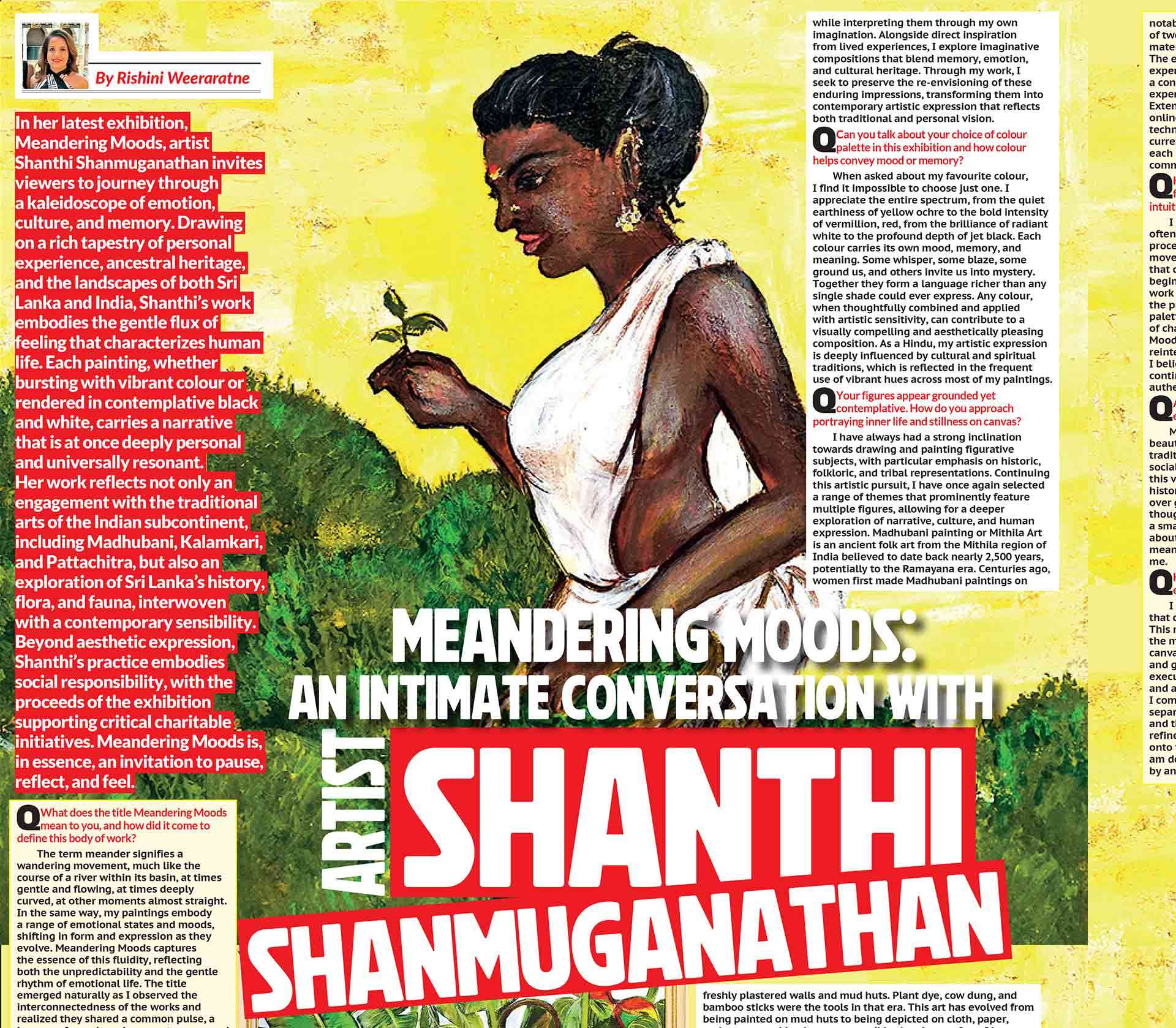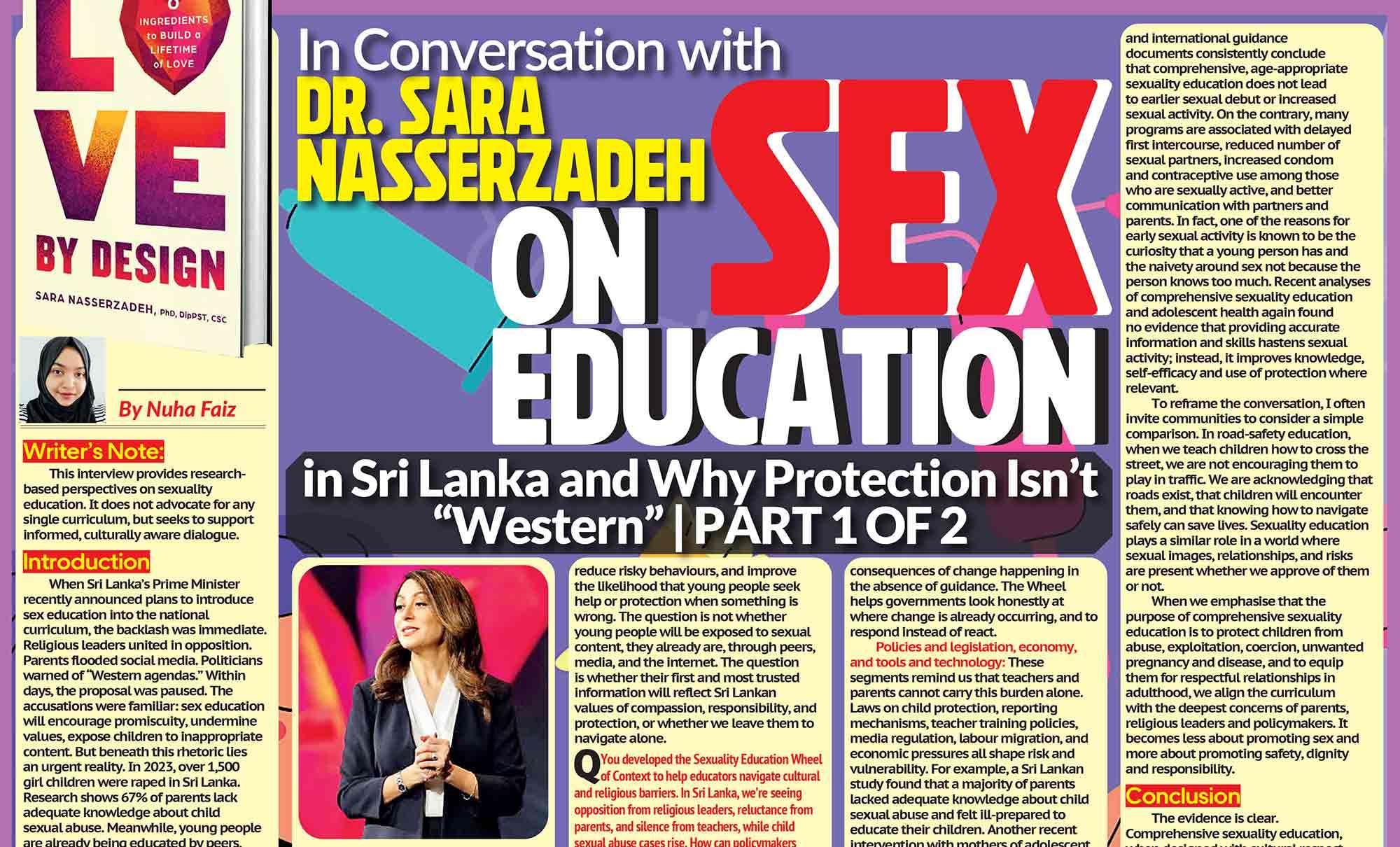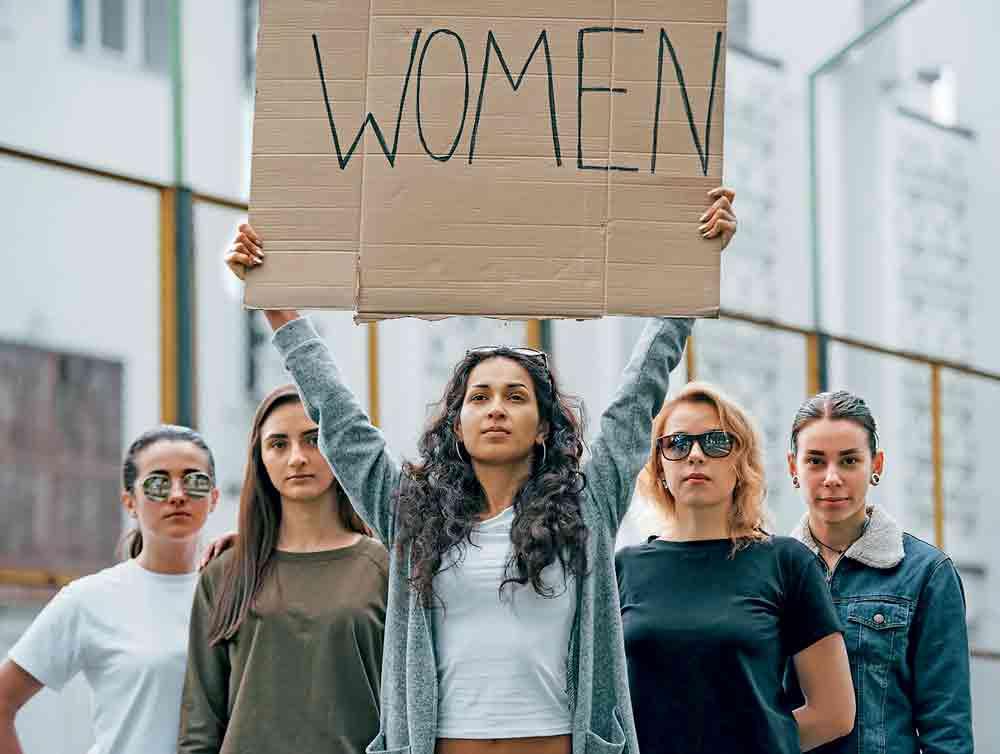
Let’s pre-empt the eye-roll. Let’s address the sigh that comes with yet another article on women’s rights. “Here comes a feminist rant,” some will think. “Another anti-government tirade,” others will conclude. This is neither.
 I have written before about the blade. The specific, intimate violence of Female Genital Cutting (FGC), a practice that mutilates infants and girls in the name of purity. But a blade does not exist in a vacuum. It is wielded. It is sharpened by a culture that permits it, by laws that ignore it, by an economy that makes communities desperate for control, and by a political system that finds it easier to look away. FGC is not our only horror. It is merely one of the sharpest expressions of a silent, systemic war being waged against the women and girls of Sri Lanka. This war is not declared, but it is fought every day in legislative chambers that delay reform, in courtrooms that fail survivors, in villages that trade daughters to settle debts, and in marriages where “no” is not a recognized word. We are living a paradox. We are the daughters of the first female prime minister in the world, a fact we wield like a shield in international forums. Yet, that legacy has fossilized into a convenient statue we dust off for speeches while the living, breathing women of this nation are being failed by every pillar designed to protect them. This is not a government problem; it is a national cancer. And it is time we diagnosed it.
I have written before about the blade. The specific, intimate violence of Female Genital Cutting (FGC), a practice that mutilates infants and girls in the name of purity. But a blade does not exist in a vacuum. It is wielded. It is sharpened by a culture that permits it, by laws that ignore it, by an economy that makes communities desperate for control, and by a political system that finds it easier to look away. FGC is not our only horror. It is merely one of the sharpest expressions of a silent, systemic war being waged against the women and girls of Sri Lanka. This war is not declared, but it is fought every day in legislative chambers that delay reform, in courtrooms that fail survivors, in villages that trade daughters to settle debts, and in marriages where “no” is not a recognized word. We are living a paradox. We are the daughters of the first female prime minister in the world, a fact we wield like a shield in international forums. Yet, that legacy has fossilized into a convenient statue we dust off for speeches while the living, breathing women of this nation are being failed by every pillar designed to protect them. This is not a government problem; it is a national cancer. And it is time we diagnosed it.
The Performance of Progress
2025 has been a year of impeccable performances. In February, at the UN, the rhetoric soars. Commitments are “unwavering.” In March, the Prime Minister correctly identifies gender inequality as a “societal issue”, a masterful act of deflection, shifting blame from lawmaker to citizen. The Women’s Empowerment Act is passed, a beautifully named piece of legislation that, activists whisper, is like a new, shiny lock on a door with no house behind it. The newly minted National Commission for Women, tasked with monumental change, is reportedly struggling for budget and authority before it even begins its work, a classic Sri Lankan paradox: empower, then defang. We celebrate the historic high of 24 women in Parliament (10.7%), a gain born not from systemic change but from the raw, furious power of the Aragalaya protests that forced a political reckoning. But let’s hold that number up to the light. It still ranks Sri Lanka among the bottom tier globally for political representation. It means that nearly 90% of the voices making laws on everything from sexual violence to economic policy are male. This isn’t representation; it’s tokenism on a grand scale.
The Ecosystem of Abuse
Beyond the optics lies a brutal reality. The following are not isolated incidents; they are data points in a pattern of decline.
1. MMDA Reform that Stalls, Again
The Muslim Marriage and Divorce Act (MMDA), which permits child marriage, has been under review for over a decade. 2025 was yet another year of silence.
Despite clear recommendations from the Human Rights Commission of Sri Lanka and tireless advocacy groups like the Muslim Personal Law Reform Action Group, the government has failed to standardize the minimum age of marriage at 18. The consequence? Girls as young as 12 can be legally married off, their educations terminated, their bodies subjected to early pregnancies. This isn’t culture; it’s state-sanctioned abuse. The failure to reform it is a conscious political choice to prioritize electoral calculus over the lives of children.
2. The Hollow Verdicts on Sexual Abuse
In late 2024, the conviction of a high-profile sexual predator was overturned on a technicality, sending a chilling message to survivors across the island. The message was clear: the system is designed to protect the powerful. This judicial failure correlates directly with the abysmal rates of reporting. Why would a woman risk the stigma and trauma of a trial when the odds of a conviction are stacked against her? The National Police Commission’s own data shows that while reports of abuse have slightly increased (a sign of breaking silence), conviction rates remain dismally low. The machinery of justice is rusted shut.
3. The Economic Noose Tightens
The IMF may be pleased with macroeconomic indicators, but on the ground, the economic crisis is a gender-based crisis.
- The Pay Gap Widens: The 27% gap is a pre-crisis figure. Economists now suggest it has widened as women, often the first to be let go from formal employment, are forced into the informal sector with even less job security and lower pay.
- Trafficking on the Rise: The National Anti-Human Trafficking Task Force reported a 15% increase in repatriations of women trafficked for labour and sexual exploitation in 2024. Economic desperation is the trafficker’s greatest recruitment tool. Yet, prosecutions of trafficking kingpins are vanishingly rare.
- Health Choices Eroded: As the health budget is squeezed, access to sexual and reproductive health services has declined, particularly in rural areas. This, coupled with the criminalization of abortion, creates a perfect storm that pushes women towards deadly, back-alley solutions.
4. The Unfinished War
A recent UN report in early 2025 highlighted the continued abandonment of Tamil women survivors of wartime sexual violence. Sixteen years on, not a single perpetrator has been held accountable in a Sri Lankan court. This state-sanctioned impunity is the foundation upon which today’s culture of violence is built.
If mass atrocities go unpunished, what hope does an individual woman have for justice for domestic rape or assault? The past is not past; it is a active blueprint for the present.
The Irony of “Tradition” in a Modern Collapse
The most profound, and indeed tragic, irony in our current crisis is the weaponization of “tradition” and “culture” to justify a glaring regression in women's rights. This is not an organic cultural preservation; it is a calculated political strategy. As the very pillars of our modern state, the economy, public institutions, and social contract, crumble around us, a reactionary grip on patriarchal norms has become a last resort for maintaining a semblance of order and control. We are witnessing a deliberate trade-off: sacrificing the progress and safety of women at the altar of a perceived cultural stability that does not, in fact, exist.
We cling to archaic legal frameworks like the Muslim Marriage and Divorce Act (MMDA), which sanctions child marriage, and the penal code exemption for marital rape, as if they are ancient, sacred texts intrinsic to our identity. This is a historical fallacy. Many of these statutes are not timeless cultural edicts but colonial-era vestiges, imported and codified by foreign rulers who often imposed a rigid, homogenized version of personal law that was easier to administer than the more nuanced traditional systems that preceded them.
Our post-independence failure has been the stubborn refusal to modernize these inherited structures, instead sanctifying them as untouchable "tradition." This inaction is not reverence; it is a conscious political choice to outsource oppression to the realm of culture, thereby absolving the state of its responsibility to protect all its citizens equally.
The evidence of this calculated decline is stark. Consider the legislative timeline:
- 2016: A Cabinet sub-committee recommends reforming the MMDA to set the minimum age of marriage at 18 for all communities. Result: Nine years of silence and inaction.
- 2021-2023: A surge of public advocacy and a private member's bill push to criminalize marital rape. Result: Heated parliamentary debates that ultimately descend into inertia, with opponents claiming it would "destroy the family unit."
- 2025: The much-lauded Women’s Empowerment Act is passed, yet it sidesteps these core, contentious issues. It establishes a Commission but fails to simultaneously provide it with the legislative tools to tackle the most severe abuses. This is progress in theory but regression in practical impact, as the window for urgent reform closes further.
This regression becomes even starker when contrasted with the areas we are willing to modernize. We aggressively pursue foreign investment, modernizing our ports and digital infrastructure to meet global standards. We accept stringent IMF conditions on austerity, privatisation, and tax reforms that directly impact our citizens' livelihoods, all in the name of economic necessity. Yet, we outright reject or endlessly delay implementing the human rights conditions that often accompany international loans and partnerships, dismissing them as "Western impositions."
The Uncomfortable Questions We Must Answer
This is not about assigning blame to a single entity. It is about demanding accountability from a system and from ourselves. It forces us to ask questions that should make us profoundly uncomfortable:
- Why does our national "honour" reside in the control of women's bodies and choices rather than in the brilliance of their educated minds and their economic participation? We are more outraged by a woman's autonomy than by her absence from the workforce or her suffering in silence.
- Why is a girl's potential seen primarily as a risk to be mitigated, a risk to "reputation" and "purity", rather than the nation's greatest untapped asset for recovery? In a country desperate for GDP growth, we are actively sidelining a massive segment of our talent pool.
- How can a nation realistically achieve economic prosperity and stability when it systematically hobbles half its population through legalized discrimination, economic neglect, and sanctioned violence? The data is unequivocal: nations that empower women are more prosperous and stable. Our path is not one of cultural preservation, but of self-sabotage.
A Fundamental Rewiring, Not a Quick Fix
The salvation of Sri Lanka does not lie in half-measures or performative laws. It requires a fundamental rewiring of our national conscience, enacted through legislation with teeth, a judicial revolution that delivers real justice, and an economic redesign that values women's labour. This is not a women's issue; it is a national imperative. The women of this nation are not victims, but its most resilient asset, the nurses, remittance senders, and protesters holding the fabric of this country together. They have carried the burden long enough. The pressing question is no longer about their strength, but about our courage. It is time for Sri Lanka; its leaders, its institutions, and its people to be brave enough to finally set them free. The world is watching, and our ledger of inaction is a testament to our choices. The time for betrayal must end. The time for action is now.

 I have written before about the blade. The specific, intimate violence of Female Genital Cutting (FGC), a practice that mutilates infants and girls in the name of purity. But a blade does not exist in a vacuum. It is wielded. It is sharpened by a culture that permits it, by laws that ignore it, by an economy that makes communities desperate for control, and by a political system that finds it easier to look away. FGC is not our only horror. It is merely one of the sharpest expressions of a silent, systemic war being waged against the women and girls of Sri Lanka. This war is not declared, but it is fought every day in legislative chambers that delay reform, in courtrooms that fail survivors, in villages that trade daughters to settle debts, and in marriages where “no” is not a recognized word. We are living a paradox. We are the daughters of the first female prime minister in the world, a fact we wield like a shield in international forums. Yet, that legacy has fossilized into a convenient statue we dust off for speeches while the living, breathing women of this nation are being failed by every pillar designed to protect them. This is not a government problem; it is a national cancer. And it is time we diagnosed it.
I have written before about the blade. The specific, intimate violence of Female Genital Cutting (FGC), a practice that mutilates infants and girls in the name of purity. But a blade does not exist in a vacuum. It is wielded. It is sharpened by a culture that permits it, by laws that ignore it, by an economy that makes communities desperate for control, and by a political system that finds it easier to look away. FGC is not our only horror. It is merely one of the sharpest expressions of a silent, systemic war being waged against the women and girls of Sri Lanka. This war is not declared, but it is fought every day in legislative chambers that delay reform, in courtrooms that fail survivors, in villages that trade daughters to settle debts, and in marriages where “no” is not a recognized word. We are living a paradox. We are the daughters of the first female prime minister in the world, a fact we wield like a shield in international forums. Yet, that legacy has fossilized into a convenient statue we dust off for speeches while the living, breathing women of this nation are being failed by every pillar designed to protect them. This is not a government problem; it is a national cancer. And it is time we diagnosed it.